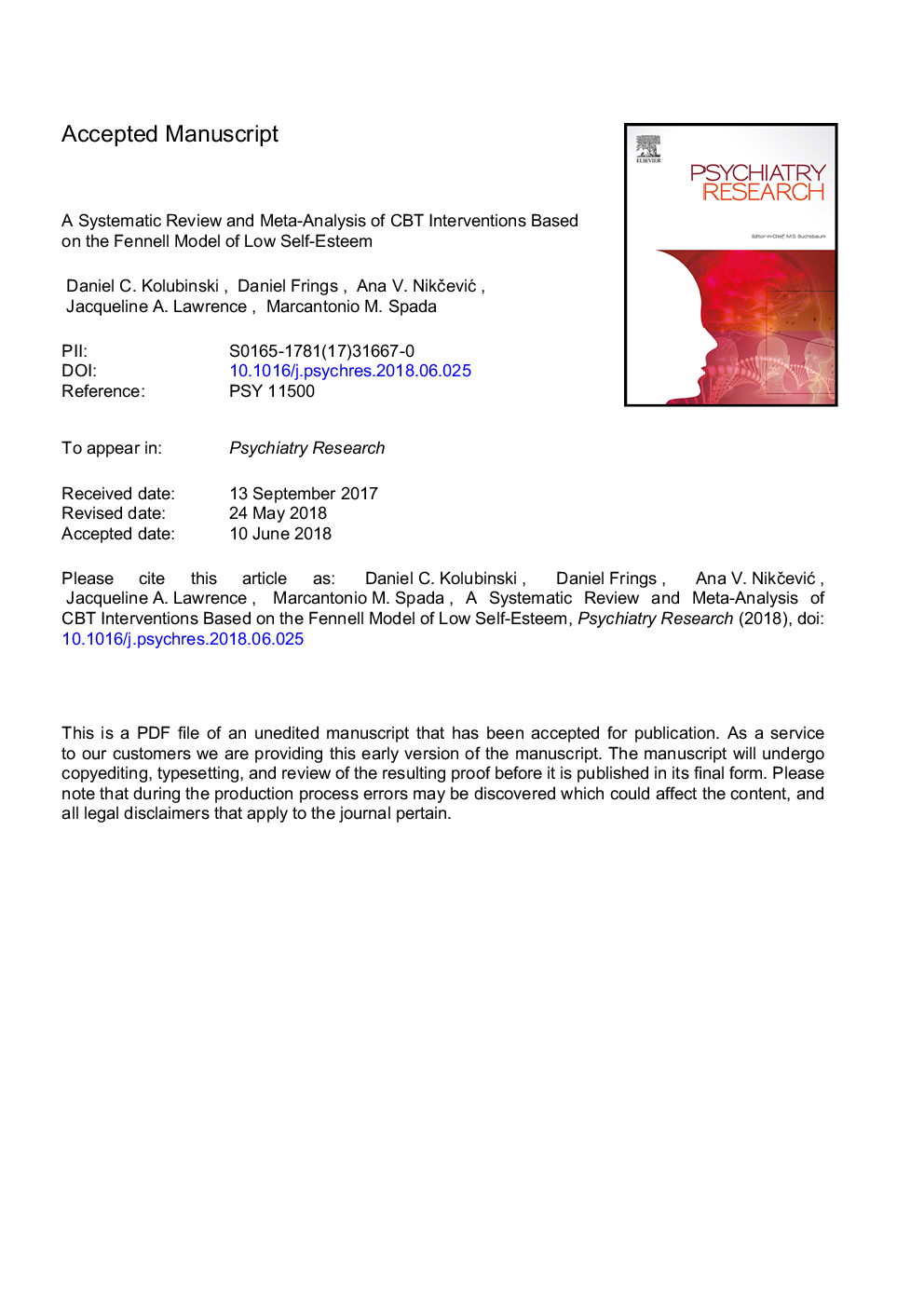| Article ID | Journal | Published Year | Pages | File Type |
|---|---|---|---|---|
| 6811288 | Psychiatry Research | 2018 | 42 Pages |
Abstract
Low self-esteem is a feature of several mental health disorders that has been directly treated with Cognitive-Behavioral Therapy (CBT). The aim of our study was to determine the efficacy of interventions for improving low self-esteem in adults by utilizing the model outlined in Fennell (1997; 1998; 1999). A literature search identified 8 studies that met the inclusion criteria of CBT-based interventions for low self-esteem using this model, 7 of which were used in a quantitative synthesis. These studies included weekly group and individual sessions and one-day workshop formats. Summary effect sizes of 1.12 and 0.34 at post-treatment were observed, with low levels of heterogeneity, for weekly sessions and one-day workshops, respectively. Comparable results were found for the reduction of depressive symptoms. Results suggest that CBT-based interventions may be efficacious for treating individuals with low self-esteem, according to changes in self-report measures; however, it is unclear whether these interventions are dissimilar to those aimed at reducing depression.
Related Topics
Life Sciences
Neuroscience
Biological Psychiatry
Authors
Daniel C. Kolubinski, Daniel Frings, Ana V. NikÄeviÄ, Jacqueline A. Lawrence, Marcantonio M. Spada,
